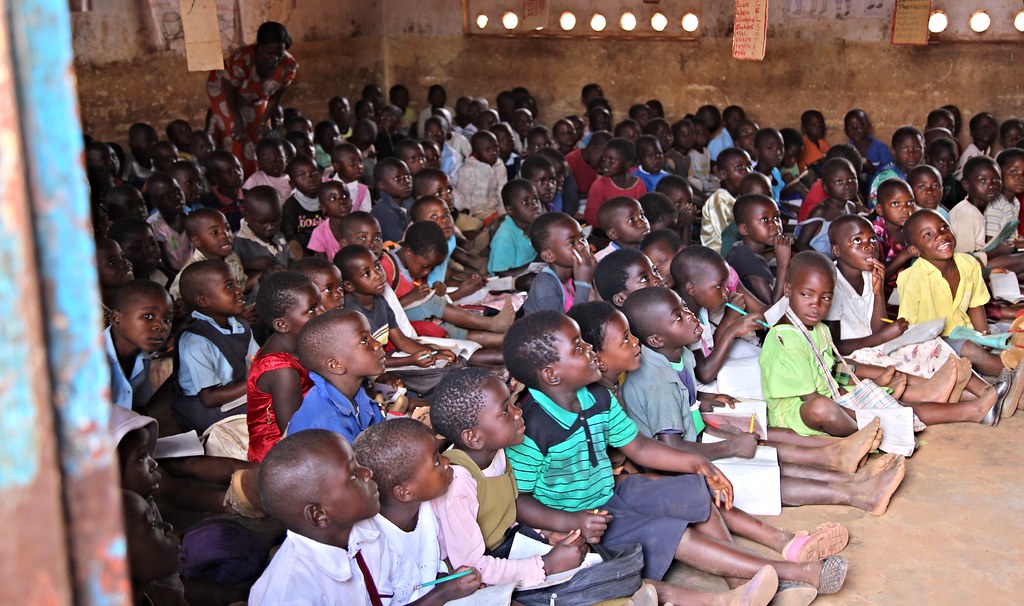Niger crisis could worsen insecurity throughout West Africa, UN envoy warns

The security situation in wider West Africa could worsen unless the political crisis in Niger is resolved, the top UN official for the region said on Tuesday, underlining the need for peace.
Briefing journalists at UN Headquarters in New York, Léonardo Santos Simão reiterated condemnation of the attempted overthrow of Nigerien President Mohamed Bazoum on 26 July.
He also underscored support for efforts by the Economic Community of West African States (ECOWAS) aimed at restoring constitutional order and consolidating democratic gains in the country.
People deserve peace
“The unfolding crisis, if not addressed, will exacerbate the deteriorating security situation in the region. It will also negatively impact the development and lives of the population in a country where 4.3 million people need humanitarian assistance,” he said, speaking from Accra, Ghana.
He added that “Niger and the region do not need coups d’état. Populations deserve to enjoy peace, democratic governance and prosperity.”
As the UN Secretary-General’s Special Representative, Mr. Simão heads the UN Office in West Africa and the Sahel (UNOWAS).
He was in Nigeria on Sunday to participate in the ECOWAS extraordinary summit on the crisis, where leaders took “decisive action commensurate with the gravity of the situation.”
ECOWAS takes action
The 15-member bloc of West African States issued a communiqué demanding that Niger’s democratically elected President be returned to power within a week.
Failing that, they would “take all measures necessary to restore constitutional order”, including use of force. ECOWAS also imposed financial sanctions on Niger and closed air and land borders with the country.
In response, the military governments in neighbouring Mali and Burkina Faso said use of force in Niger would be a “declaration of war”, according to international media reports.
Mr. Simão had no comment on their statement but said he will travel to Mali’s capital, Bamako, on Wednesday “so I will have interaction with the authorities and maybe these matters can be raised.”
Hopes for resolution
He said ECOWAS “is trying to give time for a peaceful settlement to take place” and described the situation as “very fluid”.
Other diplomatic efforts are also underway, including a visit by the President of Chad who will meet with some of the “key personalities” in Niger, he added.
“ECOWAS, as far as I understand, is not for use of force. It is for negotiating a settlement of the situation,” he said.
Potential regional implication
The UN envoy expressed hope that military action will not be necessary but stressed that this would solely be the decision of ECOWAS and not the UN.
“What we value and support is that all means to find a peaceful solution for the problem should be used but recognize also that ECOWAS has the right to take other measures if they feel fit,” he said.
Mr. Simão was asked if he was concerned about any potential impact the Niger crisis could have on the wider region.
“My concern is that if measures are not taken, or the situation is not reversed, it is very likely the spread of terrorism in the region can increase,” he said. “But no one wants to see regional conflict happening.”
Guterres concerned over arrests
Meanwhile, UN Secretary-General António Guterres has expressed deep concern over reports of the arrest of several members of Niger’s Government.
“(He) urgently calls for the strict adherence to Niger’s international human rights obligations and the prompt restoration of constitutional order,” said UN Deputy Spokesperson Farhan Haq, speaking on Tuesday in New York.
Mr. Haq also said that the UN and humanitarian partners are committed to stay and continue to provide vital aid to the most vulnerable segments of the population.
“To ensure the continuation of this crucial assistance, it is imperative that all parties foster a conducive operating environment,” he added.
Visit UN News for more.
ALSO READ
New York Strikers Gear Up for Abu Dhabi T10 Title Defense
Billionaire Bribes: Gautam Adani's New York Indictment Shakes Business World
New York Finally Ends Century-Old Adultery Law
New York's Bold Move: $9 Traffic Charge for Manhattan
New York Strikers' Dominance in Abu Dhabi T10: A Triumph of Power and Precision










